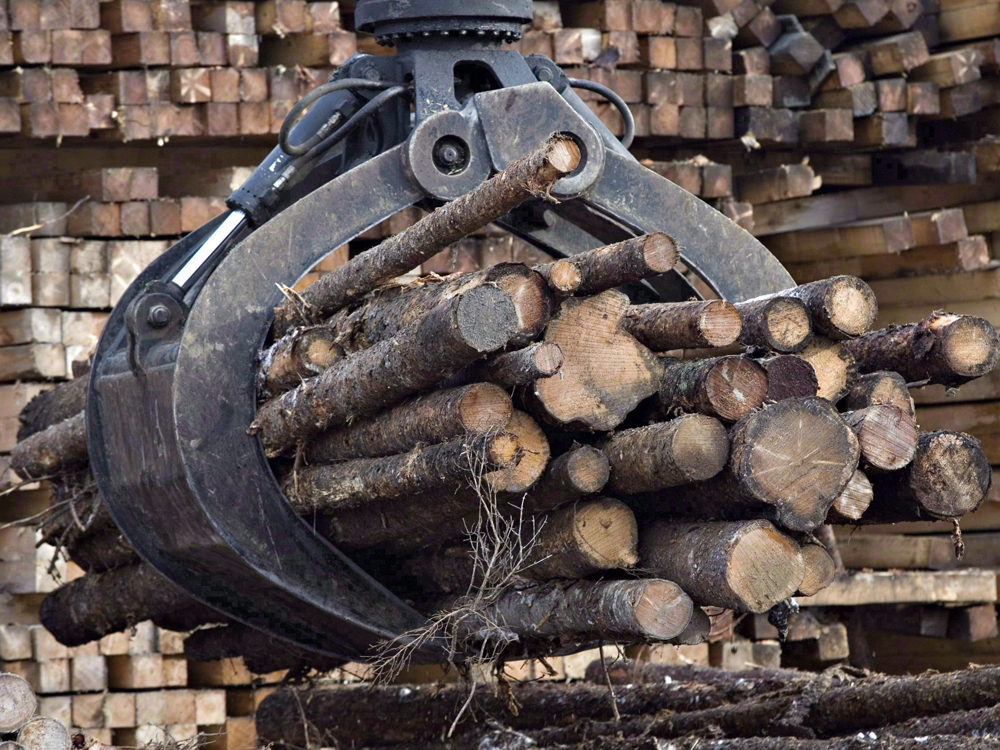A new World Trade Organization ruling on softwood lumber has dragged Canada into the heart of a long-running dispute over a controversial American trade practice — a standoff experts say is unlikely to end soon.
Canada is appealing the decision by a WTO panel that would allow the United States limited use of a method known as “zeroing” in its calculation of antidumping duties, Foreign Minister Chrystia Freeland said Monday.
“The WTO has ruled more than 20 times that zeroing, a method of calculating and applying artificially high and unfair duty rates, is inconsistent with WTO rules,” Freeland said in a statement.
But as the U.S. continues to block the appointment of new judges to the WTO’s appellate body or top court — an action that could leave it powerless by December — Canada’s challenge is almost certain to languish, said Tom Prusa, an economics professor and expert in trade policy at Rutger’s University.
“This finding does not mean Canada will ultimately lose when the case gets to appeal,” he said. “But unless the U.S. changes its tune on the WTO, this case will sit in in limbo for a long time. That’s the problem for Canada, it’s stuck now in the zeroing dispute.”
The arcane practice of “zeroing” is one of the most hotly contested issues among the WTO’s 164 member countries. It has long been used by the U.S. to prove that foreign firms are unfairly “dumping” or selling products into American markets at prices that are lower than in their home markets.
Put simply, a zeroing calculation attempts to prove dumping has occurred by taking into consideration the average of all shipments from a foreign firm sold below the average U.S. price. To the frustration of U.S. trading partners, it then ignores all shipments sold above the U.S. price, effectively giving them a weight of zero. Countries targeted by the practice complain that it exaggerates the gap in prices, making a dumping finding more likely and penalties more severe.
“It’s complete gibberish mathematics,” said Prusa. “It’s a trick that works for the U.S. by throwing out adverse facts and now Canada is trapped in it.”
An additional irritant for Canada in the softwood lumber case is that the “home price” for Canada was calculated across many months — ignoring seasonal fluctuations, he added.
“It matters because prices change over time,” said Prusa. “You might have high demand in the summer and low demand in the winter. When you do that average the way the U.S. has been doing, even normal variations look like dumping.”
Following complaints from countries like Japan and Brazil — frequent targets of antidumping — the WTO effectively outlawed zeroing in the mid 1990s. But while most countries abandoned their use of the method, the U.S. carried on, despite approximately 20 WTO rulings against it. In 2012, the U.S. abandoned its use of zeroing except in what it called “exceptional cases” a definition that ensnared Canadian softwood lumber.
“The softwood lumber case not only allowed the U.S. to treat Canadian softwood as exceptional it also allowed it to use zeroing broadly in exceptional cases,” said Prusa. “It was no doubt a loss for Canada.”
But the ruling also placed strict limitations on what parameters can be used to define a case as exceptional, said Simon Potter, counsel for McCarthy Tetrault representing Quebec border mills in the case.
What’s more, when the case eventually reaches the appellate body, he expects a ruling would also go against the use of zeroing even in exceptional circumstances.
“I think they’ll say ‘no, you can’t do it,’” he said.
But that ruling may prove elusive until the U.S. stops blocking the appointment of judges. The seven-member body is now down to three judges — the minimum required to hear cases — and continued American efforts to block appointments could soon render it paralyzed.
• Email: npowell@nationalpost.com | Twitter: Naomi_Powell

